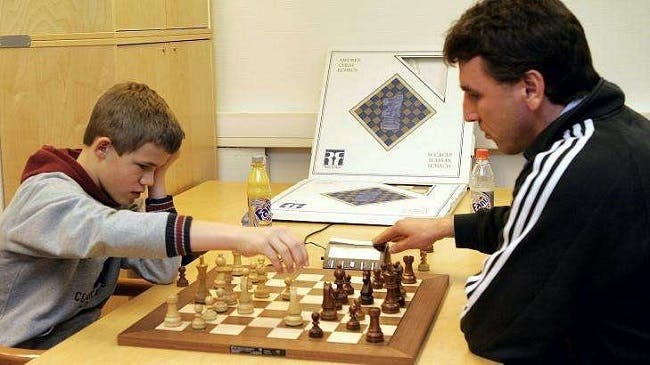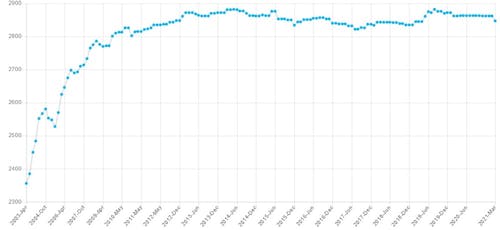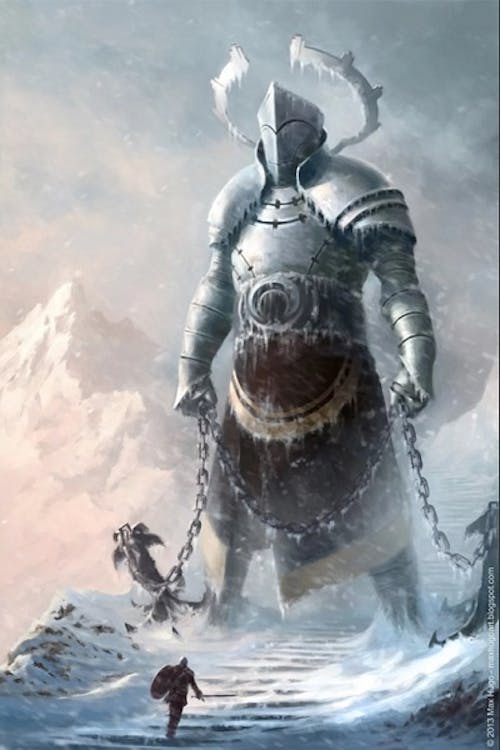Are you sure you want to delete your account?
(This will permanently delete all of your data - purchases, game scores, ratings, etc)
Change your username
Your current username is: guest
Change your account email address
Your current account email is:
Redeem your Fampay code here!
Use your Fampay code to get access to the Play Magnus Plus Membership!

How to make the most out of your chess coaching
Future World Chess Champion Magnus Carlsen and his coach GM Simen Agdestein in 2005
People resort to chess coaching for different reasons. For some of us, it is merely about bragging rights: “I have Grandmaster X assisting me in preparation!”. For others, it’s a much-needed confidence boost and a source of inspirational stories in times of need.
Some club players want to take their game to a new level with the help of chess coaching. Are you one of them? To get the most value out of chess coaching, you must be prepared and realize what to request from your chess coach.
Here are a few key recommendations:
Get to know yourself better. It is hard to objectively assess your games, especially if you are not very experienced. By getting a flawed perception of your player profile, you are likely to waste a lot of time fighting windmills, while your shortcomings will be there to haunt you.
To prevent that from happening, send the coach a database of your recent games. By studying them and, if necessary, offering you some tests, a professional coach will be able to come up with a chess dossier on you. There you will find a list of your strengths and weaknesses, stylistic preferences, (lack of) knowledge of typical middlegame and endgame positions, opening proficiency, psychological traits, etc.
It is crucial to keep developing your main strengths while also mitigating your weaknesses. Without a proper diagnosis, it is impossible to cure your chess disease!
Come up with a training plan. If you are serious about chess, you need a long-term improvement plan (the cure itself!). Now that you have created a dossier, your coach should be able to recommend what you should focus on. At this stage, it makes sense to discuss your goals and resources frankly. How far do you want to go in terms of results? How much time/money/passion can you allocate to chess? Are there any hindrances to your plan, for example, you are always feeling burnt out after work and can’t focus during the training sessions? As you can see, these questions are rather personal, so you had better find a coach whom you like as a human being; this way, you have a chance to develop mutual trust and understanding eventually.
In chess, you can perform most of the work independently if you know what you are doing. That is, typically, apart from your one-on-one sessions, your coach will give you home assignments, such as studying certain games, doing exercises, creating opening files. However, if you can afford it and enjoy having someone next to you, you can do everything together. Nevertheless, one of the main benefits of chess is that it teaches you how to think and work on your own.
As you improve, don’t forget to update your dossier and pick new challenges for yourself. Your coach will be there to guide you.
Create your tournament calendar. Studying can take you only so far. To become a better player, you should regularly compete in tournaments, especially those with classical game controls. Once again, make sure to plan accordingly and discuss this topic with your coach. Since it is tough to combine playing in an event with work or other duties (not to mention that it is detrimental to your performance!), you must make sure you can fit those tournaments into your schedule. Right now, the situation is even trickier since there are few live events, and all sorts of travel restrictions are in place. Consult your coach on how to find workarounds (online events, hybrid tournaments, training games, etc.) if you lack “normal” practice.
When playing a tournament, try having the coach assist you with preparation for the games. This method takes some workload off you and is also much more efficient than trying to frantically analyze opening positions in the evening yourself, getting dizzy, and forgetting how to calculate chess lines without computer assistance.
Have your coach teach you how to fish instead of giving you fish. A good coach helps you develop vital chess skills. A mediocre or egocentric coach enjoys the fact that you pay him by the hour, so he never shares the training methodology and gives you only specific knowledge. For example, instead of teaching you how to study openings and create opening files in general (how to fish), he will share his file on a specific opening and walk you through it. If you need information on another opening, the idea is that you should book him for a few more hours (buy more fish). That being said, even if you know the techniques, the coach is usually more experienced and stronger than you, so he will still be able to assist you in specifics. But you need to make sure that he gives you the big picture before delving into specifics.
Here is an example of how your dialogue could develop:
You: I want to learn how to play the French Defense as Black.
Coach: Sure. I will send you my opening file on it. Check it out, and next time we will discuss it.
You: How do I even make such a file? Where do I find the games? What games should I include? How do I choose between continuations that the engine evaluates as more or less equal? Should I use an engine when making such files? How do I annotate them? Are computer opening books any good?
Coach: Great questions! Next time I will show you how to start from scratch then.
The bottom line: prioritize investing in mastering the methodology of training.

Magnus Carlsen and Simen Agdestein at the Norwegian College of Elite Sport in 2015
Finally, where do you look for a chess coach? In the time of the COVID-19 pandemic, online coaching is the way to go. One of the best sites, where you can book both individual and group classes, is CoChess.com. Regardless of your skill level and aspirations, you should be able to find a top-notch coach there to assist you, especially if you know what you are looking for.
Good luck with your chess improvement!

